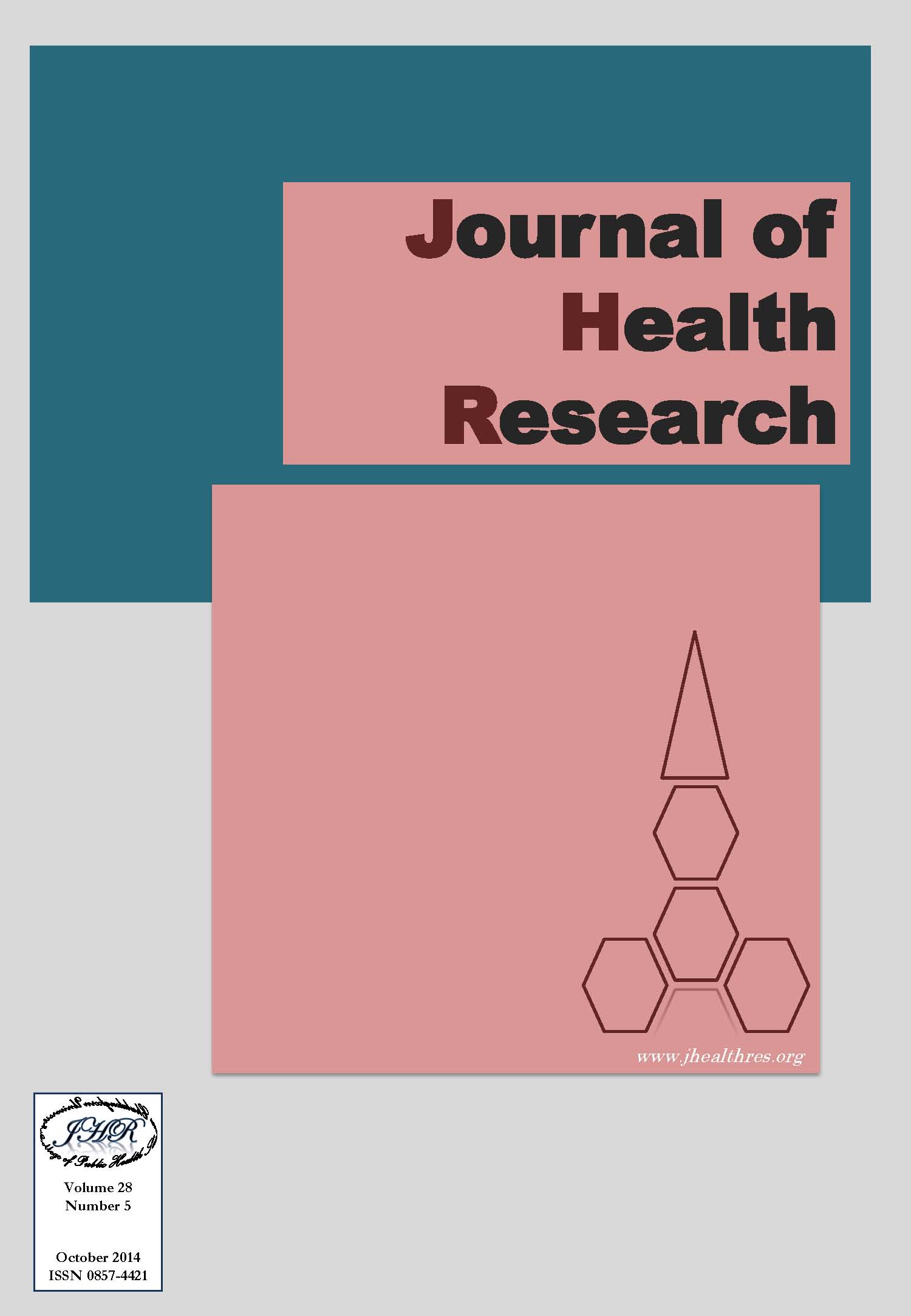Assessment of Knowledge Attitudes and Practices Regarding Antibiotic Use in Trang Province, Thailand
Keywords:
Antibiotic use, Knowledge attitudes and practices, ThailandAbstract
Knowledge, attitudes, and practices (KAP) regarding antibiotics use were assessed in a cross-sectional study of 396 adults. Data were collected with a self-administered questionnaire. Chi square tests and Spearman’s correlations were used to examine associations of knowledge, attitude, and practice with study participants’ sociodemographic characteristics and with each other. 75.5% of participants were females, 50.3% were married, 68.2% worked in the non-agricultural sector, 68.2% had monthly income <7000 Baht, 72.0% were free of co-morbid diseases, and 78.0% had used some medication in the past 3 months. Minimum, mean, and maximum knowledge scores were 3, 10.43±2.84, and 16, respectively. Corresponding attitude scores were 1.27, 2.49±0.39, and 3.00. Corresponding practice scores were 1.81, 2.68±0.22, and 3.00. Females, younger persons, unmarried persons, persons with higher education, and persons with lower income tended to have better knowledge about antibiotics. Females, younger persons, unmarried persons, persons with higher education, persons with lower income, persons without co-morbid disease, and persons who used medication in the past 3 months tended to have better attitudes toward antibiotics. Females, younger persons, Buddhists, persons with higher education persons without co-morbid disease, and person who used medication in the past 3 months tended to have better practices regarding antibiotics use. There was a relatively weak, but statistically significant, positive correlation between knowledge and practice regarding antibiotics use (r=0.204, p<0.001). There was a moderate and significant positive correlation between attitude and practice regarding antibiotics use (r=0.474, p<0.001). The study participants tended to have inadequate knowledge, inappropriate attitudes, and incorrect practices toward using antibiotics. Improvement of KAP should result in more appropriate use. Further research is needed to advance understanding of factors associated with KAP regarding antibiotics use, and to inform strategies to improve the appropriateness of their use.







